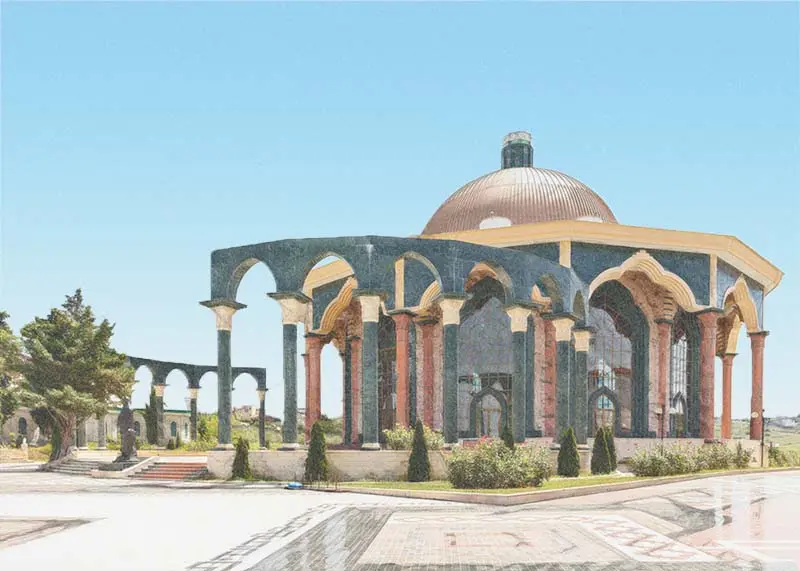Good morning,
What do Albania and Italy have in common (besides their migration deal)? The beautiful seaside, hospitable people, Mediterranean food? Why stop at that? Seemingly taking inspiration from Italy and the Vatican, Albania is in the process of creating its own micro-state. Our correspondent, Silvio Icka, explains this certainly surprising move in today’s newsletter.
In today’s edition, you can read about the devastating impact of air pollution in the Balkans, a way to reduce labor shortage in the region, how the climate crisis is affecting winemaking in Slovenia, and more.
Albania to create a Muslim Bektashi microstate
CREDIT: Blerta Begisholli
In a move that surprised everyone, the Albanian prime minister Edi Rama announced that he is planning to create a new Muslim microstate within its territory – which would become the smallest microstate in the world, at only 11 hectares. He first introduced the idea for the creation of this state for the Bektashi movement, a Sufi order of Shiite Islam, representing around 5% of the country’s population, at the UN General Assembly in New York . The state would have its own administration, passports, and borders, but no military and no territorial ambitions towards the rest of Albania. It would not enforce a dress code for women and alcohol would be allowed. PM Rama stated that his goal was to make it a Centre of "moderation, tolerance, and harmonious and peaceful cohabitation."
Critics, caught by surprise by this idea that was previously undiscussed in public, see it as a bid by Rama to distract attention from corruption scandals at home and to receive more favorable foreign media coverage. One day before the news was announced, the German newspaper Der Spiegel published a critical feature about how Rama had become the darling of Europe despite the corruption and organized crime back home.
The idea for the creation of the state would require a change to the constitution, critics pointed out, and could potentially undermine the state’s long-held neutrality on questions of faith. "It is a prime example of how Albania is being led as a personal fiefdom, where political decision-making is not based on institutions," said Afrim Krasniqi, director of Tirana-based think tank the Institute for Political Studies, in an interview with Balkan Insight.
The moderate Sufi order of Bektashi has been based in Albania since the 1930s but its influence in the Balkans can be traced back to the 16th century when the region was part of the Ottoman Empire, promoting a tolerant form of Islam. Blending a flexible understanding of the Quran with mysticism, aspects of Turkey’s pre-Islamic religions, and reverence for their deceased spiritual leaders called dervishes, the Bektashi order relocated its headquarters to Tirana from Turkey nearly a century ago. This move followed the closure of their operations by Mustafa Kemal Ataturk, the founder of the Turkish Republic. During the communist regime, Albania banned religion in 1967, but Bektashi survived and started reorganizing in the 1990s.
From what media reported during the week, this came as a surprise to many in Albania, including the Sunni Muslims, who said they were not consulted by the prime minister. "Such initiatives may set a dangerous precedent for the future of the country," they said in reaction. In explaining his plan, Rama said it would contribute to religious harmony in a country already well known for it. However, Enis Sulstarova, a sociologist at Tirana University, disputed this, saying it amounted to granting special status to the Bektashi and denying it to other faiths.
Albania is Making History
ready to create microstate

Vatican 2.0